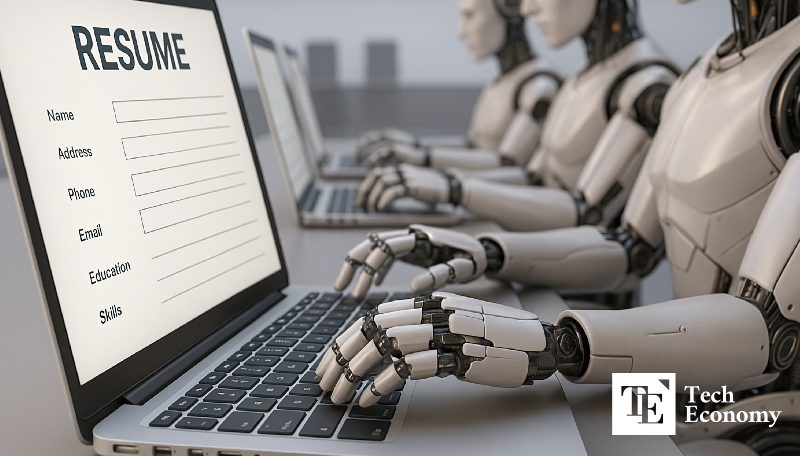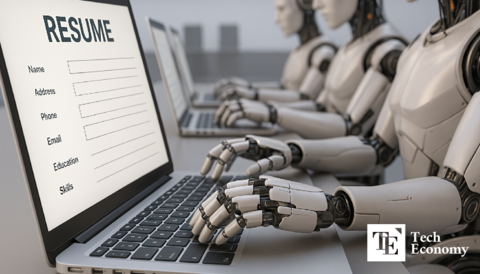Input
Changed
Concerns become reality: UK entry-level posts shrink by 30% AI adoption and economic uncertainty drive down hiring Global firms expand plans to cut workforce via AI

Since the launch of generative AI tool ChatGPT, nearly one-third of entry-level jobs have disappeared, data shows. AI has replaced repetitive and routine junior roles. Additionally, rising employer insurance burdens and new labor regulations have made hiring more difficult, according to analyses.
31.9% drop in graduate, internship, and entry-level roles
On July 1 (local time), British daily The Times reported that job postings for graduates, apprentices, and interns—categorized as "entry-level"—on UK job site Adzuna fell by 31.9% between November 2022, when ChatGPT launched, and May this year. By sector, retail saw the steepest decline at 78.2%, followed by logistics, warehousing, and administrative roles. Entry-level positions in IT, accounting, and finance also dropped by more than half.
As of May, entry-level job postings declined by 4.2% compared to the same period last year. Meanwhile, total job postings increased by 0.5% and continued to rise for three consecutive months. In May, there were an average of 2.02 applicants per job posting, up from 1.98 in April. The average time to fill a job shrank from 39.6 days to 35.8 days. As the number of entry-level positions dwindled, the average salary for posted jobs rose by 9.4% year-over-year to $53,880.
Writing jobs tumble after ChatGPT rollout
Experts attribute this trend to AI replacing entry-level roles while wages rise. James Neave, head of data science at Adzuna, explained, “Beyond overall economic challenges, AI is a primary factor driving the decline in entry-level roles.”
Writing roles have been hit particularly hard. According to the Harvard Business Review, the paper Who Will AI Replace? The Impact of Generative AI on Online Freelance Platforms found that job postings for writing tasks dropped by 30.37% when comparing pre- and post-ChatGPT launch data. Generative AI tools like ChatGPT are powered by large language models (LLMs) trained on massive amounts of text, predicting the most likely next word in a given context. These models construct multidimensional maps of words, phrases, meanings, and contexts, enabling them to develop a deep understanding of language.
This suggests that even jobs once thought secure in the AI era—high-skilled, education-intensive roles—are now replaceable. While it was previously believed that AI couldn’t threaten such jobs, rapid advances now allow AI to handle tasks like writing and academic paper preparation. For example, abstracts and references that require little interpretation or inference from researchers can be generated seamlessly by AI. Even the labor of reading entire papers for prior research analysis is no longer necessary, as AI can now summarize entire documents.

Demand grows for experts with critical thinking and creativity
Experts warn that shrinking job openings may intensify already fierce labor competition and reduce compensation for remaining roles. As AI tools are increasingly adopted and refined, the availability of routine or redundant tasks is expected to decline further.
In fact, more companies are now publicly announcing plans to cut workforce using AI. Telecom firm BT said it plans to replace 10,000 roles—including call handling and network diagnostics—by 2030 using AI. Dario Amodei, CEO of Anthropic, the startup behind chatbot Claude, projected that AI could eliminate half of all new office jobs within five years, pushing unemployment up to 10–20%. Amazon, the world’s largest e-commerce company, also expects internal roles to disappear as AI is deployed more broadly across operations.
On the other hand, demand is expected to increase for professionals with skills that complement generative AI tools—such as critical thinking, creativity, and emotional intelligence. This shift in skill demand could reshape the labor market and widen the gap between high-skill, high-wage jobs and low-skill, low-wage ones. The current trend shows that AI is not merely an efficiency tool but is actively driving structural changes in employment markets. Particularly, the decline in entry-level jobs raises concerns that youth unemployment could become even more severe.













